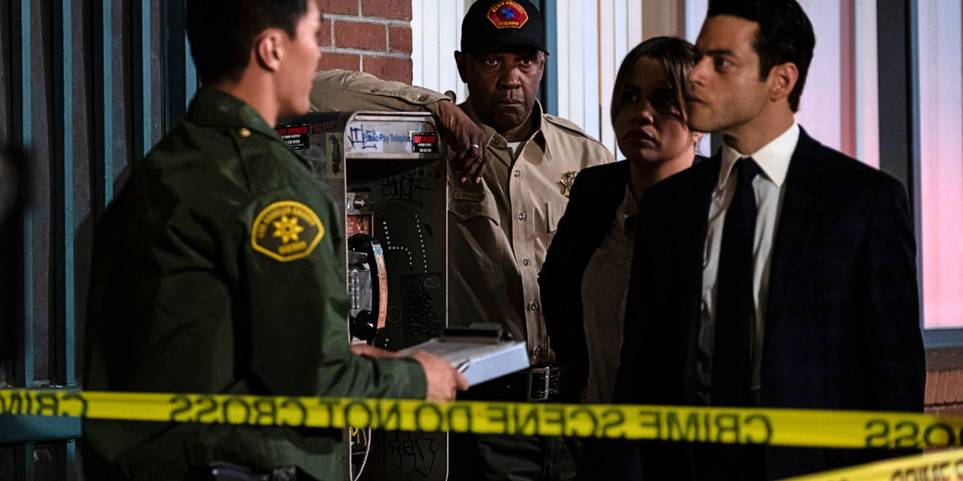Written and directed by John Lee Hancock, and produced by Hancock and Mark Johnson, The Little Things is a 2021 American neo-noir crime thriller film set in 2021. Detectives (Denzel Washington and Rami Malek) are investigating a string of killings in Los Angeles in the early 1990s when they come across a peculiar loner who may be the culprit (Jared Leto).
While in development hell, the script was initially created in 1993 and had a slew of directors and actors attached. Revival of this project was announced by Hancock in 2019, with Malek and Leto and Washington being cast as the lead roles. Filming began on September 2, 2019, and concluded up in December 2019.
When Warner Bros. Pictures released The Little Things in the US on January 29, 2021, it was simultaneously available on HBO Max for one month. Critics gave the picture a mixed reception, but gave high marks to the cast. Leto was nominated for Golden Globes and Screen Actors Guild Awards for Best Supporting Actor for his work in the film.
Cast
Joe “Deke” Deacon of the KCSO, played by Denzel Washington
Jim Baxter (Rami Malek) of the LAPD is played by Malek.
Albert Sparma, played by Jared Leto
Detective Chris Bauer It is Sal Rizoli’s birthday today.
Flo Dunigan is played by Michael Hyatt.
Captain Carl Farris (Terry Kinney) of the LASD
Detective Jamie Estrada is played by Natalie Morales.
In the role of Ana Baxter, played by Isabel Arraiza,
Detective Sergeant Rogers is played by Joris Jarsky.
KCSO Captain Henry Davis is played by Glenn Morshower in this film.
Sofia Vassilieva plays the narrowly escaping Tina Salvatore, and Maya Kazan plays Rhonda Rathbun, the current victims, while Anna McKitrick, Sheila Houlahan, and Ebony N. Mayo portray the previous victims, who haunt Deacon’s waking dreams as well as Mary Roberts, who Deacon mistakenly shot.
Also Read: Fever Dream Ending Explained: How Did Carole Save David?
The Meaning of ‘The Little Things’ Finale

When Deacon and Baxter first start working together to catch the killer in The Tiny Things, he observes, “It’s the little things that get you caught.” When Deke helps Baxter cover up his crime at the end of the film, this statement takes on a whole new meaning.
The Little Things is a dated period piece set in the 1990s because it relies on tired neo-noir clichés about cyclic inevitability and the young, promising, morally conscientious cop repeating the mistakes of the discredited, older cop.
As a result, Baxter’s belief that his acts were justifiable and that justice had been served is further bolstered. As a police officer, Deacon jeopardises the safety of innocent women by allowing a real killer go unpunished, ignoring the implications of his actions.
It is the tiny things, such as systematic complicity and guilt-ridden cowardice, that sum up to the huge social problems that still haunt humankind today.
If It Is True, Does the Story of The Little Things Have Any Validity?
The Little Things inevitably raises the question of whether or not the story is based on actual occurrences, as is customary in this genre. Like many films of this type, the answer isn’t definitively yes or no. He began working on The Little Things back in 1993 when the Night Stalker murders were still fresh in people’s minds and films like Silence of the Lambs were winning Oscars.
It’s clear then that Hancock had no shortage of ideas for The Little Things, and he even collaborated with an LAPD investigator to gather field notes for the novel as it was being developed.
The plot of The Little Things, as well as the people who appear in it, are entirely made up. Based on real-life detective tactics, Deacon and Baxter’s narrative is infused with the spirit of real-life American serial killer investigations. The Little Things, on the other hand, isn’t based on a real-life story.
Was Sparma Right to Charge Him?

“The reality is I didn’t kill anyone,” Sparma admits more than once, and of course a killer would not declare yes, it was me… or would they? My theory is that, based on Sparma’s excitement with discovering whodunit and reading about murders (he possessed a book of Helter Skelter), he would genuinely take pride in his crimes, especially after playing cat-and-mouse games with both Baxter and Deacon.
Even though Sparma admitted to murdering someone once, he was found innocent. On another occasion, Sparma informs Baxter that he hasn’t contemplated what it would be like to deal with the aftermath of death.
Sparma may have considered killing individuals, but I don’t believe he actually did anything about it. When he glanced at the photos of the crime scene, he appeared shocked (and perhaps captivated as well).
Except for the fact that he’s scary, John Lee Hancock doesn’t provide much evidence that Sparma is the assassin. He’s just a suspect because Deacon and Baxter believe that he committed the crime.
Because of this, the Little Things audience can either believe that Sparma was the culprit, like Baxter, or look at the evidence and realise that the cops got away with murdering innocent people, like Baxter (for now).
The beauty of the ending of The Little Things is that it’s open to interpretation by the audience, so they can see Sparma as the unambiguous serial killer, or they can see it as ambiguous, and that’s what makes it so enjoyable (or leave it ambiguous and move on with their lives).
Also Read: Halloween Kills Ending Explained: What’s Michael Myers’ Motive?



Comments are closed.